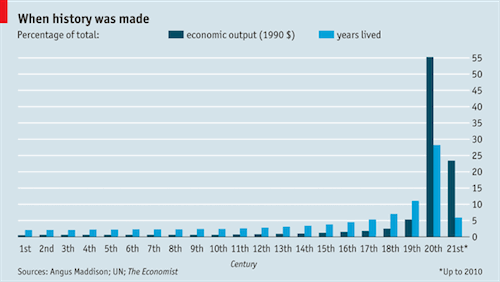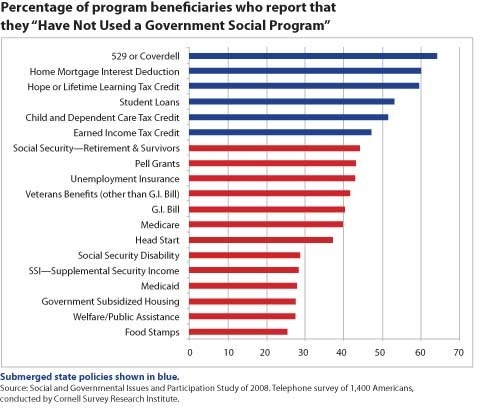Matthew Yglesias's Blog, page 2259
June 28, 2011
Obama The Passive
David Frum's proposed critique of Barack Obama:
The job has overwhelmed the man. He's not an alien, he's not a radical. He's just not the person the country needs. He's not tough enough, he's not imaginative enough, and he's not determined enough. In the throes of the worst economic crisis since the 1930s, the president ran out of ideas sometime back in 2009.
I think there's a lot of truth to that. I know I've obtained a reputation in certain circles as an Obama apologist because I don't believe that disappointing policy outcomes out financial regulation or the public option or immigration reform or climate change are primarily attributable to poor legislative tactics or a lack of "leadership" on Obama's part. But that's largely because I believe all critiques of Obama that aren't critiques of his macroeconomic management are slighting the role that poor macroeconomic management has played in exacerbating everything else. It's certainly true that his team has faced an unprecedented level of non-cooperation from Republicans. But at the same time, Obama hasn't shown much in the way of so-called "Rooseveltian resolve" to keep trying things and appears to have quite sincerely pivoted toward deficit control and structural reform last winter even with unemployment stuck at sharply elevated levels. Concurrently, the actual team of senior policymakers has evolved so as to remove from office most of the people (Summers, Romer, Bernstein) who feel passionately about this issue.


Living In The Best Of Times
Via Ryan Avent, a clever chart from the Economist:

It's an important reminder that, for all the problems of the present moment, this is, in many ways, the best of times for the world when you take a global and historical perspective.
But you can also see right here why we're watching some unprecedented ecological crises unfold on the planet. The human species isn't new and people have been altering the natural environment for a long time, but there are many more people alive currently than has traditionally been the case and the scale of present-day economic activity blows everything in the historical record out of the water.


The Many Problems With Big Cars

Annie Lowrey reports that "[t]he average new car weighed 3,221 pounds in 1987 but 4,009 pounds in 2010″ with bad results for the safety of the country. She cites research from Maximilian Auffhammer and Michael Anderson at UC Berkeley and concludes that when you control for own-vehicle weight, "being hit by a vehicle that is 1,000 pounds heavier results in a 47 percent increase" in the probability of dying and that it gets even worse with SUVs and pickups.
To me, this is one of the more frustrating elements of the conversation around electric cars and other miracle approaches to reducing gasoline consumption. The reality is that cars have gotten more fuel efficient on average despite getting a lot bigger. If stringent fuel economy standards or — much better — drastically higher gas taxes were imposed, the first-order response would be to start pushing car weights back down. After all, European auto fleets are much less gas-intensive than American ones not because of miracle alternatives to the internal combustion engine but simply because their cars are smaller. Some people need big cars some of the time, of course, but mostly people are just driving to work and so forth in a mostly empty car. And at a lower car size equilibrium, drivers would be both safer on average and less of a deadly threat to cyclists and pedestrians. It would also be easier for innovators to put tolerably safe electric cars (or autonomous robot cars) together if they didn't need to share the road with as many giant vehicles.


The Dutch Halal Butcher Crackdown

Erik Voeten offers a tale of cynicism from Dutch politics, as animal welfare is used as a kind of cloak for anti-Muslim policies:
The Netherlands has a small Party for the Animals let by the charismatic Marianne Thieme. This party introduced a bill to ban slaughter without first sedating the animals. Aside from the one Dutch kosher butcher, this new law only affects Muslims (halal prohibits sedation). The governing VVD lets few opportunities go by to show that it is just as tough as Geert Wilders' PVV on Muslim immigrants, so it set aside its liberal (in the European sense) principles and supports the initiative (as do all main Dutch parties, except for the Christian-Democrats on ground of religious freedom). Presumably there are much greater issues of animal cruelty that parliament could legislate on but conveniently they picked the one that mostly affects Muslims.
Something that's definitely nice about the United States is that, though our political culture is hardly unaffected by bigotry or oft-violent nationalism, I'm pretty confident this would never fly here. The equivalent version of the opposition from Christian Democrats on ground of religious freedom would be much more robust, and secular Americans who couldn't care less about the details of halal butchery still have an appropriate conception of ourselves as a potentially oppressed minority.


The Hidden Welfare State
Suzanne Mettler has turned her important research on perceptions of government programs into a popular article for the Washington Monthly. The key point is, I think, well-summarized by this chart:

Basically when you create government programs to subsidize certain activities via the offer of tax credits or tax deductions, people don't mentally process that as a "government program." Thus one can speculate that such people would be hostile to the idea of higher tax rates as a way to fund useful government programs, even both tax subsidies and appropriated subsidies require higher tax rates over the long term.


Do We Want Cheaper Health Care?

Ikea furniture is not the best furniture in the world. Indeed, the quality is considerably lower than that of the kind of Nordic modernist stuff that it's imitating. But rise of Ikea has been a good thing for human quality of life. Sometimes furniture that's almost as good and much cheaper is exactly what you want. On the health care front, however, I often ask myself if that's something that we, as a society, would be willing to accept. Suppose someone invented a device that, when used properly at home, could diagnose a range of illness about 90 percent as well as an average general practitioner at a much lower cost. Would a device like that be legal? Would it be brought to market? Or would regulations and fear of lawsuits shut it down. After all, it's not safe to use the DiagnoMachine rather than see a doctor. Or, at least, it's not as safe especially when you consider that untrained civilians might use it wrong.
But by the same token, if you can't bring a device like that to market, it's going to be hard to generate the kind of competition that over time will raise the accuracy and user-friendliness of DiagnoMachines. The earliest MP3 players were pretty crappy, after all, but their existence helped bring forth the original iPod, which itself was a pretty sorry device compared to its descendants.
This is what I was reminded of when I read Michael Mandel's piece (PDF) on MelaFind, "a handheld computer vision device intended to help dermatologists decide which suspicious skin lesions should be biopsied for potential melanoma." The FDA wouldn't approve the device because:
— The device did not do better than the experienced dermatologists in the study ("the FDA review team does not believe this is a clinically significant difference between MelaFind and the examining dermatologist.")
— The device was tested on lesions identified by experienced dermatologists, not on the broader set of lesions that might be identified by "physicians less experienced than these dermatologists."
— The device did not find every melanoma in the sample ("Since the device is not 100% sensitive, if use based on the device's diagnostic performance reduces the number of biopsies taken, harm could ensue
in the form of missed melanomas.")
— The device was not demonstrated to make inexperienced physicians the equal of experienced dermatologists ("Currently, formal training is offered to physicians to become board certified dermatologist and thus be able to diagnose clinically atypical lesions. The FDA review team would have to compare this board certification training to that offered by the sponsor to those physicians operating MelaFind to determine if it is found adequate.")
To me the important thing about this is that the objections are basically cogent. It seems like you really are better off with the professional judgment of an experienced dermatologist than you would be with a less-trained doctor trying to see patients quickly by using MelaFind as a speedy low-cost screening device. That said, if you care about cost — about the capacity of a community health center to serve as many clients as possible within a fixed budget constraint — then none of these anti-MelaFind findings seem very damning. And as Mandel says, things tend to improve over time. This is sort of "the equivalent of rejecting the first cell phone on the grounds that callers might mishear important messages."
[UPDATE] Another way of getting at the issue here is to imagine you're with some friends and proudly announcing "we took our son to the new discount pediatrician over the weekend, so dinner's on us!"


Feminism As A Negative Shock To American Education
Tyler Cowen has an excellent post smacking down right-of-center skeptics about the value of education. I have to say that I think it's strange that the pure signaling model of education is so popular among libertarian college professors. How does Bryan Caplan's belief that attending college imparts no useful skills impact his pedagogical methods when students take his undergraduate econometrics class? But after running down the evidence, Cowen gets to what he thinks is the real puzzle:
The real puzzle is how large measured marginal returns to education are consistent with the continuing observed failures of the American educational system. Why does the low-hanging fruit persist or is it low-hanging at all? The traditional liberal view is that further educational subsidies are needed, but a possible alternative is that some people simply do not wish to step across to the other side of the divide to a "better life," at least as defined by middle class values and income statistics. Or is there some other hypothesis? Whichever way you cut it, a big improvement in this area does not seem about to happen and arguably we are moving in the opposite direction. Whatever gains are there "in the data," we don't seem able or willing to capture them.
For one thing "more subsidies needed" and "some people simply do not wish to step across" seem to me to be pretty similar ideas. If present-biased and moderately ill-informed teenagers are failing to familiarize themselves with the academic literature on the long-term returns to education and focus more on their own schooling, then steps to make education less costly (which might include subsidies as well as other types of reform) should be beneficial.
At any rate, while I don't want this to be taken the wrong way, I think the cause of the problem here is the intersection of feminism and capitalism. Prior to 1970 or so, overwhelming social and politician coercion was brought to bear on women to overwhelmingly focus their time on childrearing and to severely limit the range of occupations they could enter. One of those occupations was, of course, teaching. This all constituted a giant implicit subsidy to the school system. In some countries, such as Sweden and Finland, the feminist turn was accompanied by big-time family leave policies, big investments in preschool, and substantial structural reforms to K-12 education. But America just kind of welcomed women to the world of competitive labor markets and left it at that. Under the circumstances, I think it's slightly surprising that we've managed to avoid actively backsliding in educational attainment. Meanwhile, the overall trajectory of the welfare state in America has shifted in favor of transfers to the elderly and disabled even though the facts on the ground suggest a shift in favor of children and families. But if the feminist revolution was sort of the origin of the problem here, it's also a big part of the solution. Taking care of and educating children is a socially vital function, one that was traditionally and unfairly assigned to unpaid or underpaid women, and we need to actually step up to the plate with preschool, family leave, as well as much more focused efforts to re-raise the average quality of teachers were in K-12 classrooms.


Mitch McConnell Demands National Bankruptcy Of Total Capitulation On Public Policy

When you see Senate Minority Leader Mitch McConnell doubling down on House Majority Leader Eric Cantor's view that the debt limit can only be increased in exchange for a massive deficit reduction package that includes zero increases in revenue, I think it's important to set this in a broader structural context.
There's a certain logic to saying that you won't do a debt ceiling increase unless there's a plan in place to reduce the deficit. But to then turn around and object that the president's deficit-reduction plan includes some deficit reducing ideas you don't like turns this into nonsense. The basic idea here is that since the federal government will ultimately need to default on the national debt unless all three branches agree on a debt ceiling increase, the two branches controlled by Democrats should surrender entirely to the one branch controlled by Republicans. These things do happen. Once upon a time, the United Kingdom had a three branched system composed of King, Lords, and Commons. But over time it became established that all the real decision-making authority rested with the House of Commons, and we had a de facto unicameral system. The Lords and King lacked the democratic legitimacy to prevail in standoffs, so all power goes to the Commons.
But that would obviously be a total revolution in American constitutional practice, and nobody has laid the groundwork for it or offered an explanation of why you should think of President Obama as similar to a king. After all, if Cantor, McConnell, and Boehner are able to say "national default unless we have an all-cuts deficit reduction package," then why not also say "national default unless we bomb North Korea" or "national default unless we reinstate Don't Ask Don't Tell?" Over the longer term, I don't think serious people of any ideological persuasion seriously think it'll be a good thing for America to turn all public policy debates into a series of hostage scenarios with debt default as the price. This is in part a testament to why it was a mistake of Obama to get sucked into this negotiation in the first place, regardless of what you think his real motives were. But it's also reflective of the truly breathtaking cynicism with which McConnell has been leading the GOP ever since the 2008 election. The priority, at every turn, has in his own words been to turn Obama into a one-term president by using powers of obstruction. But the American constitutional system can't function if both parties play be these rules.


The State Of Children's Rights In America
I don't want to endorse either Justice Thomas' dissent or Justice Breyer's dissent in the 7-2 decision finding that a ban on selling violent video games to minors is unconstitutional, but I do want to make the observation that the current rights of Americans under the age of 18 is kind of nonsensical.

A 16-year-old isn't allowed to buy a pack of cigarettes or order a beer at a bar or join the military or buy a lottery ticket. In New York City, a 16-year-old can't drive, and having sex with a 21-year-old is a Class E felony. It's illegal to sell a porn magazine to a 16-year-old. And needless to say a 16-year-old can't vote, serve on a jury, or otherwise exercise the general functions of citizenship in the American republic. A 16-year-old, in other words, just doesn't have basic rights. You can discriminate against them in various ways, and they're deemed appropriate targets for paternalistic concern. But despite all this they have a constitutional right to violent video games? Really? Maybe the right way to read this is that children should have many more rights. Certainly I'm not terrified by the thought of civically engaged teenagers voting, and I'm fairly confident that notwithstanding the legal prohibition, teen boys are in fact looking at porn and society manages to survive. But I think the United States should try to articulate a more coherent theory of what's going on here than the idea that taking away someone's violent video games would be a more fundamental abrogation of human rights than taking away his right to vote.


Insult Of The Day
John Adams on Thomas Paine: "For such a mongrel between pig and puppy, begotten by a wild boar on a bitch wolf, never before in any age of the world was suffered by the poltroonery of mankind, to run through such a career of mischief."
A poltroon is a coward.


Matthew Yglesias's Blog
- Matthew Yglesias's profile
- 72 followers



